This isn’t the first time an old friend has surprised me with an (in my estimation) overly generous gift because of a Facebook post. Last year, I let loose a depressed rant that spurred a reassurance of caring and love from a good friend in New Orleans. In the comments section I apologized to him for not being able to attend his wedding. Soon thereafter, a friend from a different period of my life bought me an airline ticket with her extra skymiles, because “friends and weddings are important.” I was almost as thrilled as I had been the previous year, when one of my best friends from my study abroad trip flew me out to spend time with her in San Francisco.
All of this got me wondering how on earth I am so lucky as to have such caring friends willing to go to such great lengths to see me, when, like all autistic people, I am saddled with “social deficits.” Stranger yet, these gifts came as a direct result of uncouth social behavior. I have heard people say one isn’t supposed to publicly discuss personal finances. It is not as though I was setting up a GoFundMe for these glasses, which are much more of a luxury than a life-changer in my opinion. I simply shouted to the world “Hey, it sucks to be poor!” And my depressive, woe is me rant was a little attention seeking, which one allegedly should not reward; in my defense, I didn’t think anyone would read the comments section, let alone deduce that they should fly me to Louisiana. However, my friends made their choices of their own free will, because, respectively, helping me, making me happy, and getting to see me really mattered to them.
I have two conditions–autism, and one I will not disclose here–that are often accompanied by severe loneliness and lack of social connection. I see people in my support groups complain about having no friends, and while I sympathize almost to the point of tears sometimes, I cannot empathize. With the exception of middle school, when I felt truly alone, I have always had many friends, so much so that it was a reason I originally rejected the possibility of having autism when others suggested it to me. In truth, however, autism is simply marked by “social deficit.” This can mean a lot of things, a number of which definitely apply to me. It can mean not understanding non-verbal language and other coded social cues. It can mean acting in socially awkward ways and not understanding what is wrong with a behavior. It can mean being so overwhelmed by your senses or emotions that you do a socially inappropriate thing anyway. Lots of little things, like failing to walk side by side with a conversation partner, or engaging in a debate with someone of higher status when it is not one’s “place” to do so. Like many autistic people, I find large groups and parties uncomfortable, and sometimes when forced to mingle, I get hit with a wave of social exhaustion. I asked one of my best friends how I ever managed to survive the soirees at her house. “When you got tired,” she said, “you laid down in the middle of the floor and crashed.”
I have always had friends, and I have always been socially inappropriate; I daresay, I actually think the two might be connected. When I was in high school, I would sing to myself on the public bus, make out with my girlfriend in front of people, and jump up on my desk in the middle of a classroom session to avoid wasps, my fear of which I made no attempt to hide. While at dinner a couple years ago, an old friend from high school confided “You know the reason we all liked you is that you were totally unafraid to be yourself.” It is a sentiment that was echoed by my best friend’s father at his birthday celebration this past weekend, when he turned to me and said, in a tone that suggested an awe constructed of intertwined compliments and criticisms: “I could live 100 lifetimes and never meet someone like you again.”
Now, as I approach 40 years old, it is harder to make good friends, and harder to be “myself.” I have been taught social boundaries, and been shown how blunt honesty and thoughtless action can hurt people, and as a result I am a little gun-shy. When I was younger and blissfully unaware of social code, I would sometimes be at a restaurant and interrupt a conversation I had been eavesdropping on, just to get my two cents in. It embarrassed my girlfriend to no end, but despite the myriad of (presumably) disturbed diners out there, I did come away with a few friendships as some of my quips turned into night-long conversations.
Authenticity alone will not win friends. There needs to be a warmth and an openness to attract people. Conversation skills help, although I used to be stereotypically autistic in the way I would monologue to others, and they still stuck around. I was also eager to share and to help, and willing to listen to people without judgment. Sometimes my oversharing upset people, but just as many times it made them feel like they could talk about similar problems they were having, but heretofore keeping to themselves.
To my fellow autists who are in search of friends, I would say to be true to yourself while learning how to be soft and reciprocal–be gentle when telling blunt truths, and be willing to engage in activities and conversations others like, even if they are boring. Be chalorous, and let them know you care–after all, that’s what friends are for.

Please connect with us if you are seeking support or hoping to learn more about being part of a Supportive, Inclusive, Compassionate, and Kind community:
Join The MindReset!
Check out Events for support groups or live events:
- Follow The MindReset Facebook page
- Follow The MindReset Twitter
- Follow The MindReset Instagram
You are always welcome to connect directly with an individual from TMR at contact@themindreset.com or (802) 377-MIND.


